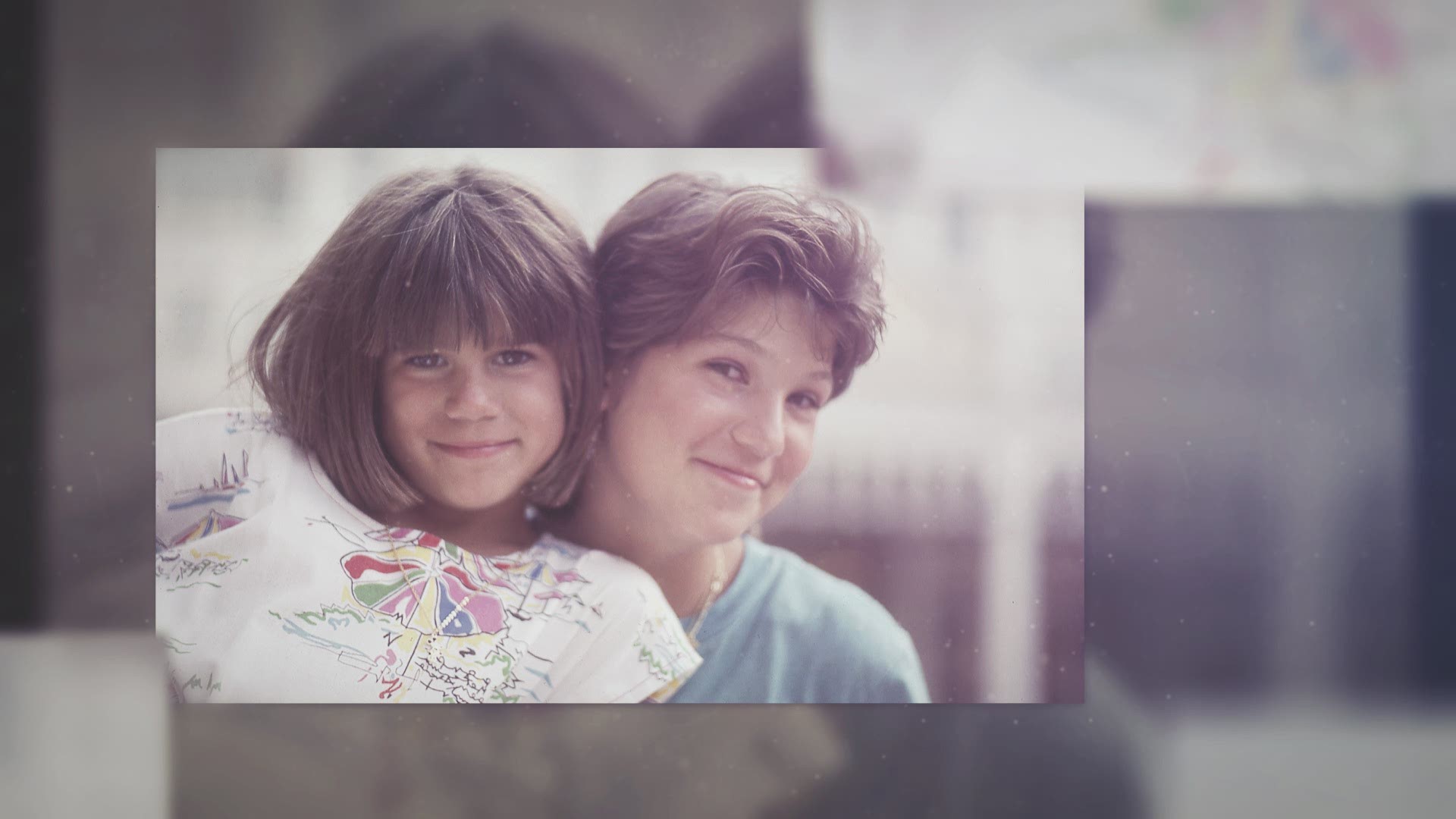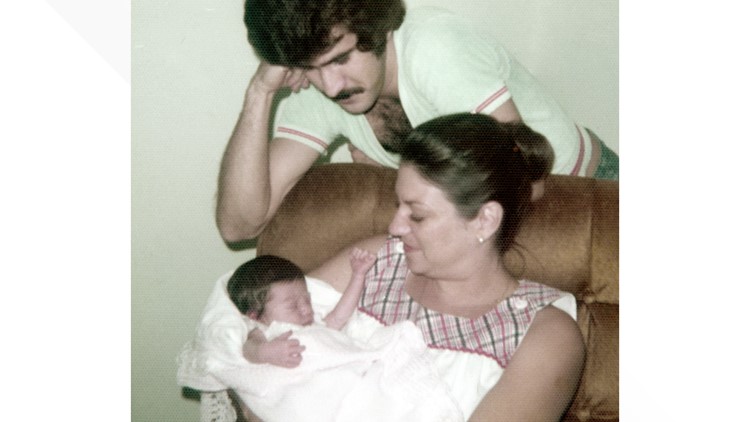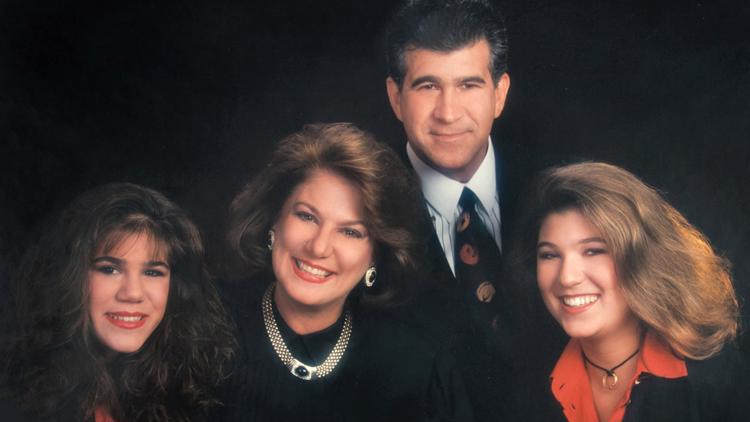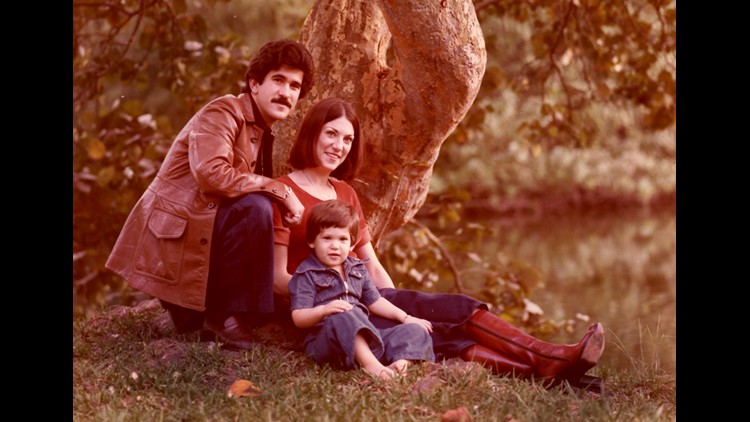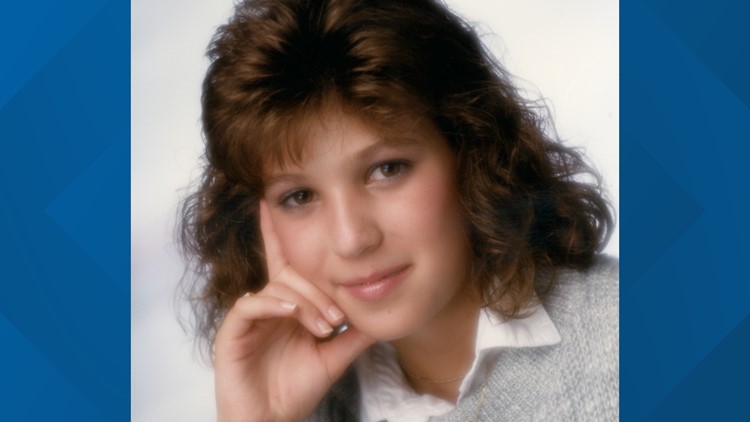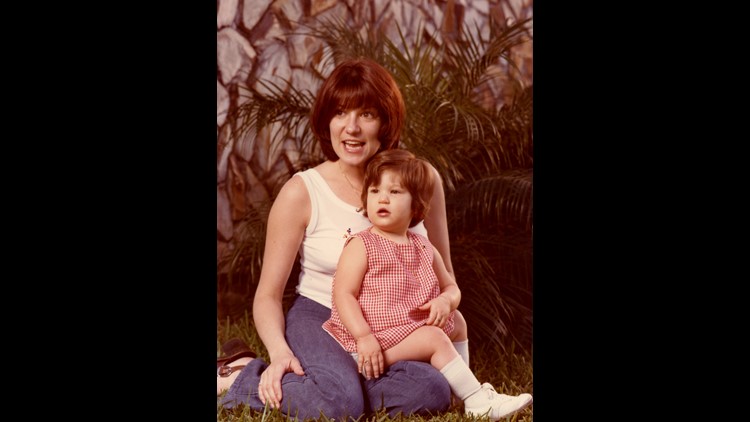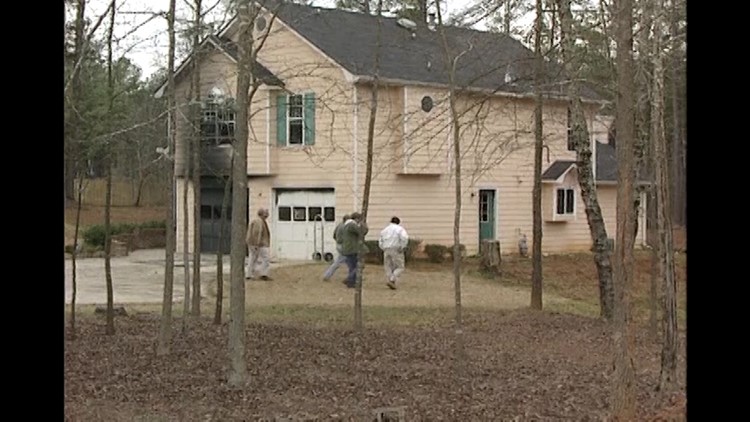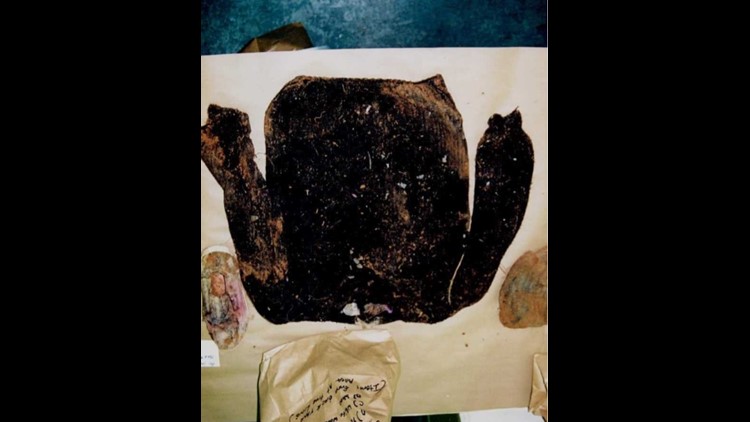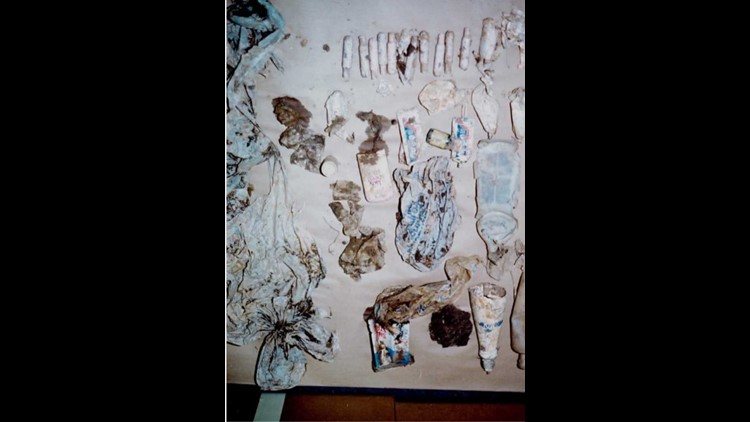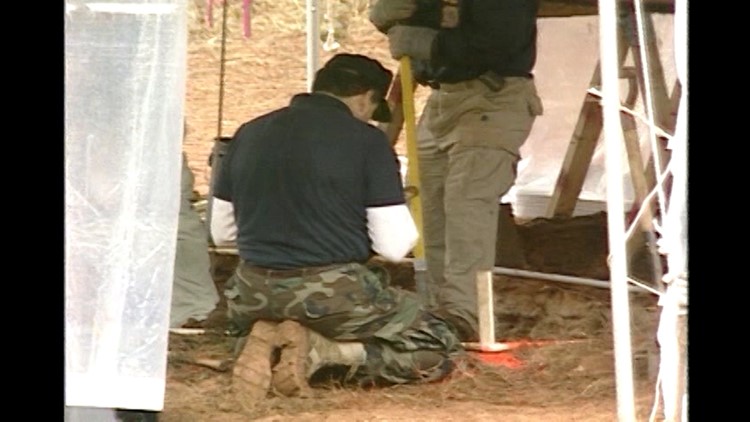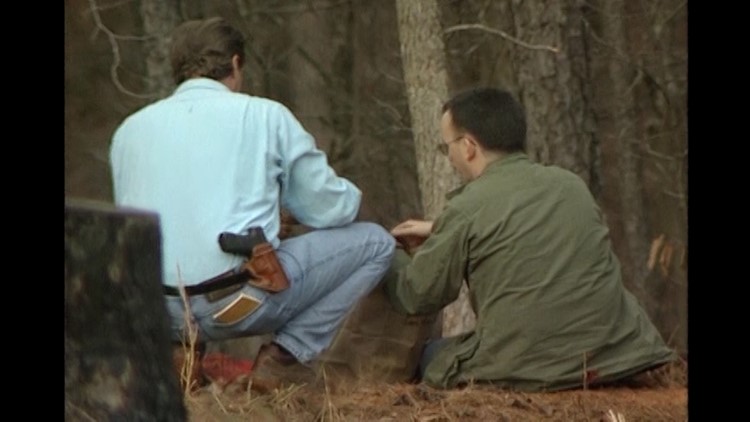DEKALB COUNTY, Ga. — UPDATE Saturday, March 7, 2020
Today, Shannon Melendi's family received a letter in the mail from the Georgia Board of Pardons and Paroles, dated March 3, that the board had denied parole for Shannon's murderer, Butch Hinton. Hinton will stay in prison. But the board also notified the family that, by law, Hinton will be eligible for parole again at the board's discretion.
Shannon's parents, Yvonne and Luis Melendi, told 11Alive News Saturday that they are grateful for the board's decision. "Thank God, and thank the paroles board. And thank those who have stood with us in this forever fight."
And Shannon's sister, Monique Melendi, said, "We are so very grateful for the support from the community, for helping us continue to fight for justice for Shannon."
"At last we can breathe," Yvonne said, "and we'll be able to breathe for another seven or eight years."
Then Shannon's family will start the fight all over again, to keep Hinton in prison.
Original story, Thursday, February 20, 2020
The date of March 26, 1994, will forever be a day engraved into the minds of Yvonne and Luis Melendi. That was the day their 19-year-daughter, Shannon, vanished. Her body was never found.
Years after the Emory University sophomore disappeared, Colvin "Butch" Hinton III was convicted of her murder. Hinton is serving a life sentence in a Georgia prison. However, about every seven years, under Georgia law, he is eligible for parole.His next chance for parole is coming up this month.
Shannon's parents, Luis and Yvonne Melendi, and their younger daughter, Monique, are fighting to keep Hinton behind bars.
"I'm still very angry" that Hinton is eligible for parole, Luis said. "I don't want him coming out. I don't want him hurting anyone. Shannon is dead forever. And he should be in prison forever. And I'm going to be extremely angry if they parole him."
"Shannon is already dead. But if they let him out and he kills someone else, it is on them, not us," he said.
Here's a breakdown of the case.
Who is Shannon Melendi?
Shannon Melendi had dreams to serve others and her country. She was born on October 20, 1974 and grew up in Miami, Florida with her parents and younger sister, Monique.
"She was such a goal-oriented child and every goal that she set, she achieved," Yvonne Melendi said.
Shannon was the President of both her Junior and Senior classes at Southwest High School in Dade County, Florida. She played soccer, was Captain of the Debate Team, and her ambitions didn't stop there. Once she graduated from high school, Shannon enrolled in Emory University in Atlanta.
PHOTOS | Shannon and the Melendi family
"She wanted to join the Navy in the JAG Corps and her whole plan was to go to Washington," her mother said. "She had a dream to be on the Supreme Court. And I don't doubt that she could have made it. "
However, during her sophomore year at Emory, those dreams were cut short. She vanished.
The disappearance
It was a Saturday in March of 1994 when the 19-year-old college student was last seen. Shannon had been working a part-time job, keeping score during games at a softball field in DeKalb County.
Suddenly, she was gone. The next day, her car was found parked at a gas station with her keys inside. The Melendis flew to Atlanta and joined her classmates, and scores of other volunteers, searching for her and putting up missing person fliers.
Then a man called the Emory hotline claiming to have Shannon. Suddenly the "missing" posters became "kidnapped" posters.
Detectives traced the call to a phone booth near a Waffle House in McDonough, where they found Shannon's ring wrapped in tape inside a pouch, which they believed the caller had left for them to find.
Investigators later traced the tape and the pouch, through microscopic evidence, directly to Butch Hinton. He was also at the softball field that day, working as an umpire.
"We hired an aeronautical scientist who was familiar with what metals, what chemicals are used in aircraft manufacture or repair," said John Petrey, one of the lead prosecutors in the case, with the DeKalb County District Attorney's Office. "Basically there were combinations of metal fragments on this tape of tungsten cobalt in such quantities and mixtures that he said this tape came from an aircraft manufacturer or an aircraft repair place. That's exactly what Hinton's job was" at Delta Air Lines in Atlanta.
The suspected killer
Police identified Hinton as the last person to see Shannon alive. He became the prime suspect in the case, but initially claimed innocence.
Prior to investigators making the connection between Hinton and the ring and tape and pouch, Hinton's house caught on fire. He was charged by federal authorities with setting the fire as if trying to destroy the crime scene. In 1995, he was convicted of arson and insurance fraud and went to federal prison for seven years.
Investigators dug up Hinton’s yard, dug through his home. They found possible evidence of other violent crimes against women, including a collection of women's sweaters.
"Buried in his back yard-- and we were amazed at that," Petrey said. "And I was speaking to the jury later. I think it, quite frankly, scared the dickens out of the jury. I don't know that we'll ever know" why those buried items were there.
"Sweaters, clothing that was found in a variety of sizes. It was way too small for his wife. Skirts, sweaters, blouses, buried. It was bizarre," he said.
But authorities never found Shannon's body.
PHOTOS | Investigation after fire at Butch Hinton's home
When Hinton was about to be released from federal prison, investigators in DeKalb County were already taking a new look at whether they could arrest Hinton for murder in Shannon's disappearance.
"Hinton's background, his previous arrests, his history as being a sexual predator had come to light," Petrey said. "But there was no body, no crime scene. No eyewitnesses could really put them together. They had been on the same softball field that day. But that was it."
Petrey began looking again at the case file.
"The more I looked at it, the more I was absolutely convinced that Butch Hinton was guilty," he said.
He called Luis Melendi.
"I remember the conversation very well. I said, 'My name is John Petrey. I'm a prosecutor in DeKalb County, Georgia. And I believe that we're going to be able to open a case on Butch Hinton for the murder of your daughter.' And there was a long pause. And Luis said, 'I've been waiting for 10 years for this phone call.' And that's when I knew I was going to do it."
Petrey and his team then established the links between Hinton and the pouch and tape, and they gathered other evidence--including statements from Hinton's fellow inmates, from his time in federal prison, in which he implicated himself.

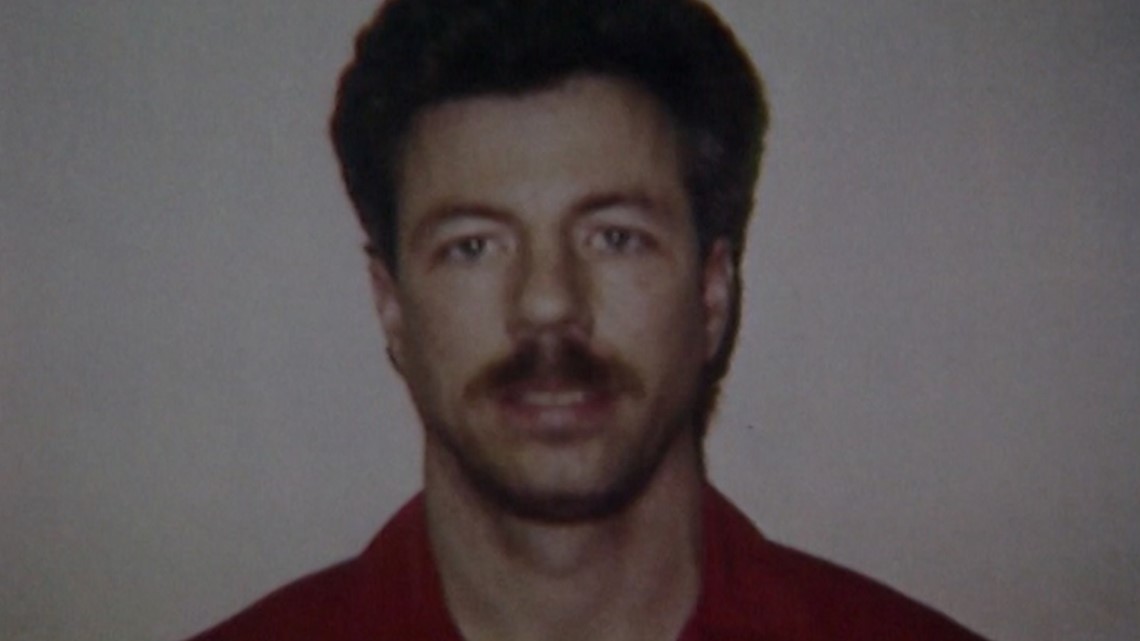
And in 2005 prosecutors convinced a DeKalb County jury to convict Hinton of murder. Hinton appealed, and when his appeals failed, Hinton confessed to it all, and more, claiming that he burned Shannon’s body in his back yard after raping her and killing her inside his house while his wife was away for the weekend.
"And what he did to Shannon, he raped her, left her tied up" the day he abducted her, said Petrey. "Went to a movie with, I think, some nieces and nephews... came back, checked on her again, gave her a glass of water, raped her again, strangled her and killed her."
Hinton's past
"Butch Hinton is an extremely dangerous sexual predator," Petrey said. "That phrase is too kind when you apply it to Butch Hinton."
Petrey will never understand why Hinton was free, at all, back in March 1994 because of his record of sexual assaults in other states against women and girls, beginning when he was a juvenile, and including a conviction in Illinois, when he was in his early 20s, for assaulting a pre-teen girl.
"His ferociousness, his sexual appetite," Petrey said. "It should have been apparent that this is not just a young man who slipped up. He was building up for bigger things."
A trial with no body
Hinton was the first person ever convicted of murder in Georgia in a case without the victim's body or a crime scene.
Petrey said he attempted, but was not able - under the laws then - to seek a sentence of life without parole.
“If it was available? Yes, Sir. Absolutely," Petrey said. "We would have sought life without parole. He was, he is, a monster. He was and is a predator. And he is still young enough [Hinton will turn 60 years old in 2020] that he could, very well, hurt people when he gets out.”
Parole eligibility
“I want him to spend a very long, miserable life in prison," Shannon's mother, Yvonne, said in 2005 when Hinton was convicted and sentenced to life in prison. "That’s where he belongs. In prison.”
"We were under a wrong assumption that he wouldn't get out," and was not eligible for parole, Yvonne said last week. And ever since Hinton's conviction and sentence, Yvonne, Luis and Monique Melendi have led letter-writing campaigns and petition drives to convince Georgia’s Board of Pardons and Paroles to keep Hinton in prison.
"We want to remind the Paroles Board that the community has not forgotten Shannon," Monique said. "We're still fighting for her."
"I don't want any family to ever have to endure what we've endured at the hands of this man," she said. "He needs to stay behind bars where he belongs."
In 2019, the state paroles board granted parole to 10 percent of the lifers who were eligible that year-- 188 inmates.

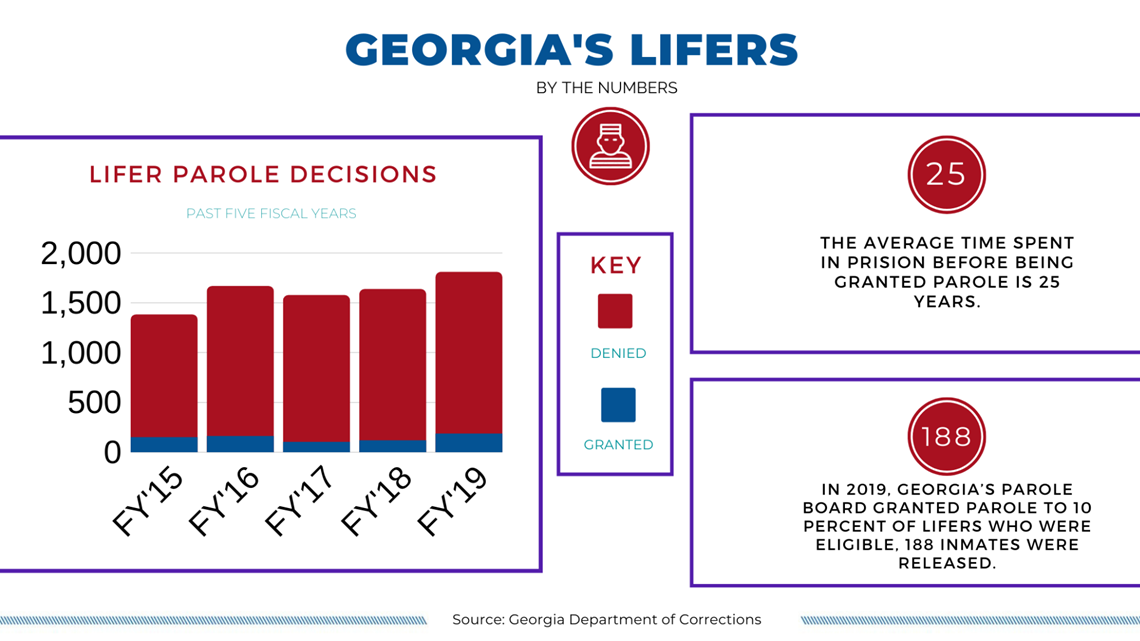
"I would like to present my case on why he shouldn't be paroled because my daughter is dead," Yvonne said. "He murdered her and we have to live with that the rest of our lives. And I think he should stay in jail the rest of his."
If Hinton is denied parole this time around (he was initially denied his first time up, in 2012), the Melendis know they’ll have to keep up the pressure for the next time he’s eligible.
"And we’ll be in our 80s by then," Yvonne said.
"If this continues to come up, at some point we will be dead," Luis said. "And then what I left Monique, what we left Monique, is to deal with this animal, to deal with this situation. And I don't want her to inherit that from us. You know, I'm really hoping right now, and I think I said many times before, that I wanted him in prison forever."
"My father has definitely passed the baton to me," Monique said, "and that's fine. I'm definitely going to fight until the day he [Hinton] dies."
Shannon would be 45 years old, now.
"I was five days shy of my 14th birthday when she was murdered," Monique said. Monique looked down and smiled, and sighed, taking a breath.
"I envision her now with a beautiful family. Extremely successful. Children. And I'm also getting married, and I would be looking forward to planning my wedding with her as my maid of honor. And our kids, growing up together. It wasn't just her life that's been deprived. It was all of ours. Our parents--not being able to hold their grandchildren."
To make a decision on parole, the board members do not hold hearings. They will each review Hinton’s case file, including the letters and petitions opposing parole for Hinton, and then each member will cast a vote. As of mid-February, no one had contacted the board on behalf of Hinton supporting parole, according to a board spokesman.
A decision could be days away or weeks away. Every time the board denies parole, the board must, by law, review the case again, but can wait up to eight years before taking it up again.
"He has a sliver of hope that he'll be released, someday," Yvonne said. "It's very difficult for us to move on. We will always remember Shannon. But, you know, it's every seven or eight years. We have to bring our guts up all over again and lay them out" in fighting to keep Hinton imprisoned.

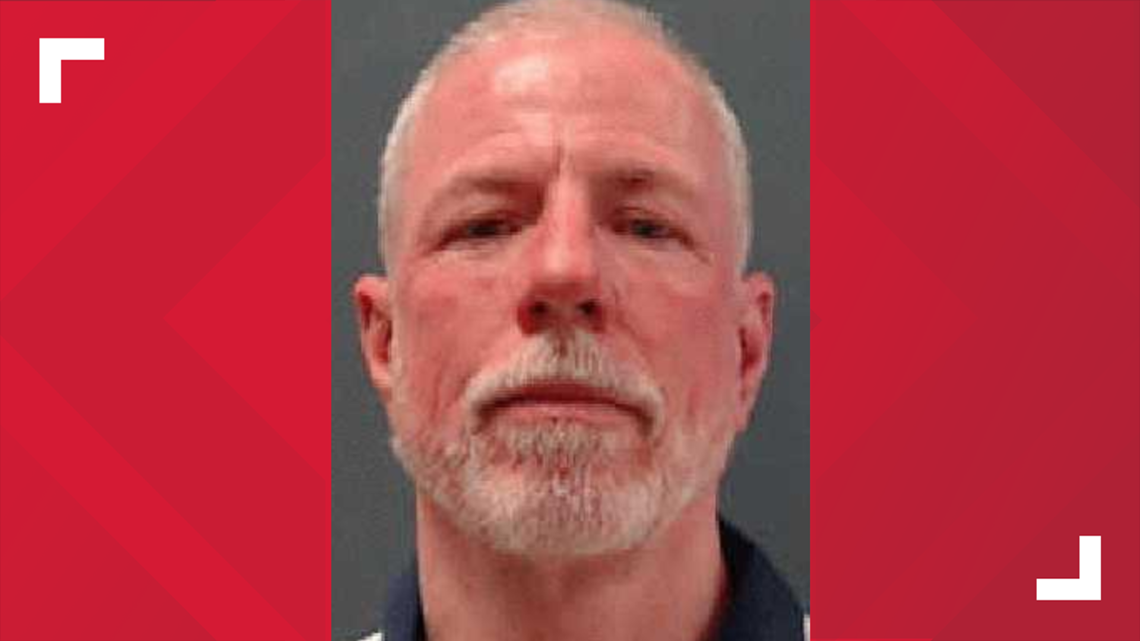
"And it hurts. It's very, very difficult," Yvonne continued. "You build up scar tissue over the years. When you have to relive it, it's tough. It's very tough. He does have a sliver of hope. He shouldn't have any hope at all. They should just say, lock him up, throw away the key. Because that's where he belongs."
"He's killed not only Shannon, he's killed my family," Luis said. "This man destroyed my parents. Yvonne's mom, the rest of the family, they've never been the same. And the worst one is Monique. That's who has been hurt the most."
A family's prayer
"I've never been the same man since 1994," Shannon's dad said. " He gets hope to get out. And what about us? What about us? Our daughter, Monique, has to live with that pain for the rest of her life."
"I refuse to believe that her death was in vain," Monique said. "It destroyed our family. It was very difficult. It's still difficult to deal with day-to-day life without Shannon. I feel that he has done this before. I think this is just the first time he's been caught for murder. And I feel that it took us catching him, for Shannon, to prevent him from doing this to another family, to other women.... It's a huge weight on us. In my heart I don't believe that he'll get out. But I have to continue fighting to make sure that doesn't happen."
They say they pray for strength. And, from their hearts, they also speak to Shannon.
"We say, 'Help us get through this.'" Yvonne said. "'We miss you, we love you. And help us get through it.'"
Fighting for justice
And for the prosecutor, John Petrey, who is now in private practice, this case has always been, for him, personal.
"Shannon was just about a year older than my oldest daughter. And my oldest daughter had been carjacked, but was not injured. It was a gun, she was carjacked at gunpoint, around the time of Shannon's disappearance. And every time I talked to Luis or Yvonne, every time I went through the file, I realized this: I'm lucky that my girl came home."
Petrey paused, fighting back tears, thinking of his daughter who now has three children, and thinking of Shannon.
"So, yeah. I flew to Miami a couple of times, talked with Luis and Yvonne. And they're great people. So this is very personal. It's very personal. I've kept up with them much more than anybody else in a case I was involved in.
"They've lost the love of their life, the light of their family," he said. "I'll do whatever it takes" to keep Hinton from being paroled.
"He does not need to be out," Petrey said. "Butch Hinton is the worst of the worst."
"I'm a praying man," Luis said. "I pray every night. Helps me go to sleep. And as part of my prayer, I pray for God to protect Monique. And I pray to Shannon to look after Monique. I believe in God. I believe that Shannon is in a good place, right now. But what was left behind by Hinton's murder is a mess."
OTHER HEADLINES

